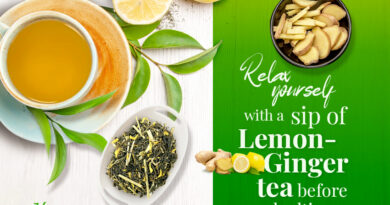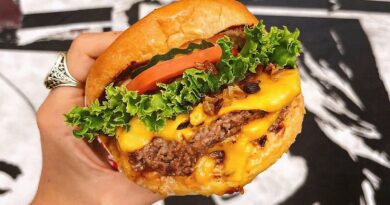Foods With B12 Vitamins
Vitamin B12 is important for the body to make red blood cells and keep the nervous system healthy. It can be found in food such as meat, poultry, shellfish, eggs, and dairy products. Some people may not get enough vitamin B12 if they don’t eat these foods or if their bodies can’t absorb it from food.
People with vitamin B12 deficiency may have anemia and other health problems.
20 High Vitamin B12 Foods (700 Calorie Meals) DiTuro Productions LLC
Vitamin B12 is essential for good health. It helps the body to make red blood cells and keep the nervous system functioning properly. Vitamin B12 can be found in a variety of foods, including meat, fish, eggs and dairy products.
Fortified breakfast cereals and nutritional supplements are also good sources of vitamin B12.
Vitamin B12 Vegetables
Vitamin B12 is an essential vitamin that helps keep the body’s nerve and blood cells healthy. It also aids in the production of DNA, which is the genetic material in all cells. Vitamin B12 can be found naturally in animal products such as meat, poultry, fish, and eggs.
However, many people do not get enough of this vitamin from their diet and need to take supplements.
Vitamin B12 is important for vegetarians and vegans because they are at risk for developing a deficiency. This is because vitamin B12 is found mostly in animal products.
While some plant foods do contain small amounts of this vitamin, it is not enough to meet the body’s needs. Supplementation is therefore necessary for these individuals to avoid a deficiency.
Vegans should look for a supplement that contains cyanocobalamin, which is the active form of vitamin B12.
This vitamin is typically found in fortified foods such as cereals and soy milk. However, it is important to read labels carefully as some brands may use inactive forms of the vitamin or add other ingredients that are not vegan-friendly.
Vitamin B12 Vegetables And Fruits
Vitamin B12 is an important nutrient that helps keep the body’s nervous system functioning properly. It can be found in animal products like meat, poultry, and eggs, as well as in some fortified foods. However, many people don’t get enough vitamin B12 from their diet and may need to take supplements.
Vitamin B12 is important for vegetarians and vegans because it is not found in plant foods. The only way to get vitamin B12 on a vegetarian or vegan diet is through supplements or fortified foods. Some good sources of vitamin B12 include fortified cereals, soy milk, and nutritional yeast.
If you think you might be deficient in vitamin B12, talk to your doctor about getting tested. Vitamin B12 deficiency can cause serious health problems, so it’s important to catch it early and treat it appropriately.
Vitamin B12 Deficiency Symptoms
Vitamin B12 is an essential vitamin that helps keep the body’s nerve and blood cells healthy. A vitamin B12 deficiency can cause a wide range of symptoms, including fatigue, weakness, constipation, loss of appetite, weight loss, and megaloblastic anemia.
Vitamin B12 is found naturally in animal foods such as meat, poultry, fish, and eggs.
It is also added to some fortified foods such as cereal and soy milk. Vitamin B12 supplements are available in oral or injectable forms.
Most people who eat a well-balanced diet do not need to take a supplement unless they have certain medical conditions that make them more likely to develop a deficiency.
These conditions include pernicious anemia, Crohn’s disease, celiac disease, gastric bypass surgery, and atrophic gastritis. Older adults are also at increased risk for vitamin B12 deficiency due to poor absorption from the gut.
If you think you may be deficient in vitamin B12, talk to your doctor about getting tested.
Treatment for vitamin B12 deficiency involves taking supplemental vitamins by mouth or by injection.
Vitamin B12 Fruits
Vitamin B12 is an important nutrient that helps keep the body’s nervous system functioning properly. It can be found in a variety of foods, including eggs, milk, meat, and some fortified cereals and breads. However, many people don’t get enough vitamin B12 from their diet and may need to take supplements.
There are a few different types of vitamin B12 supplements available on the market today. Some are pills that must be taken orally, while others are injections that are given intramuscularly (into the muscle). The most common form of supplement is oral pills; however, injections are often prescribed for people who have trouble absorbing vitamin B12 from food or supplements.
Vitamin B12 is also available in a sublingual form, which means it dissolves under the tongue. This type of supplement is thought to be more easily absorbed than oral pills, but there is no scientific evidence to support this claim. Sublingual vitamin B12 supplements are not as common as oral pills or injections.
If you think you might be deficient in vitamin B12, talk to your doctor about getting tested. A blood test can determine if you have a deficiency and how severe it is. If you do have a deficiency, your doctor will likely recommend taking a supplement to correct it.
What is Vitamin B12 Good for
Vitamin B12 is an important nutrient that helps keep the body’s nervous system functioning properly. It also helps make red blood cells, which carry oxygen throughout the body. Vitamin B12 is found in animal products such as meat, poultry, fish, and milk.
Some people may not get enough vitamin B12 if they don’t eat these foods often or if their bodies can’t absorb it from food properly. People at risk for vitamin B12 deficiency include vegetarians, older adults, and those with certain medical conditions. A vitamin B12 deficiency can cause fatigue, weakness, anemia, and other serious health problems.
Taking a supplement or eating foods fortified with vitamin B12 can help prevent a deficiency.
How to Get Vitamin B12 Naturally
Vitamin B12 is an essential nutrient that helps keep the body’s nerve and blood cells healthy. It also aids in the production of DNA, so it’s pretty important stuff! The trouble is, vitamin B12 is only found naturally in animal products like meat, poultry, eggs, and dairy.
So, if you’re following a vegan diet, you might be wondering how you can get your hands on this vital nutrient.
The good news is that there are a few plant-based foods that are rich in vitamin B12. These include seaweed, certain mushrooms, tempeh (fermented soy), and fortified foods like plant-milks and breakfast cereals.
You can also take a supplement or get a B12 injection from your doctor to make sure your levels are topped up.
So there you have it! With a little bit of effort (and maybe a supplement or two), you can make sure you’re getting all the vitamin B12 your body needs to stay healthy and happy.
Vitamin B12 in Egg
If you’re looking for a nutrient-rich food that can help you improve your energy levels and support a healthy nervous system, look no further than eggs. One large egg contains approximately 0.6 micrograms of vitamin B12, which is over half of the recommended daily intake for adults. Vitamin B12 plays an important role in the production of red blood cells and helps to maintain a healthy nervous system.
Eggs are also a good source of other vitamins and minerals such as vitamin A, iron, phosphorus, and selenium.
Eggs are typically easy to incorporate into your diet – they can be cooked in many different ways and added to all sorts of dishes. If you’re looking for a quick and nutritious breakfast option, try scrambling some eggs or making an omelet with veggies.
You can also add hard-boiled eggs to salads or make deviled eggs as a tasty appetizer. However you choose to eat them, including eggs in your diet is a great way to increase your intake of vitamin B12.
Vitamin B12 in Nuts And Seeds
Vitamin B12 is an essential nutrient that helps to keep the body’s nervous system functioning properly. It can be found in a variety of foods, including meat, poultry, fish, eggs, and dairy products. However, some people may not get enough vitamin B12 from their diet and may need to take supplements.
Nuts and seeds are a good source of vitamin B12. For example, one ounce of sunflower seeds contains about 0.6 micrograms of vitamin B12. This is about 10% of the daily recommended intake for adults.
Other nuts and seeds that contain vitamin B12 include pistachios, almonds, flaxseeds, and sesame seeds.

Credit: www.healthline.com
What Food is Highest in B12?
B12 is found in animal products, so the food highest in B12 is anything from animals. This includes meat, poultry, fish, eggs and dairy. The amount of B12 in these foods varies, but it is generally higher in liver and other organs than muscle meat.
Eggs are a good vegan source of B12, as well as some fortified plant-based foods like nutritional yeast and cereals.
How Can I Increase My B12 Naturally?
If you’re looking to increase your B12 intake naturally, there are a few things you can do. First, include foods that are rich in B12 in your diet. Some good sources of B12 include beef, lamb, poultry, eggs, and dairy products.
You can also get small amounts of B12 from certain plant-based foods like tempeh and seaweed. If you don’t eat meat or animal products, you may want to consider taking a supplement or eating foods that have been fortified with B12.
Another way to increase your B12 levels is to make sure your body is absorbing it properly.
This means ensuring that you have enough stomach acid and intrinsic factor (a protein needed for proper absorption). One way to do this is to take a hydrochloric acid supplement before meals. You can also try eating fermented foods like sauerkraut or taking a probiotic supplement.
Lastly, make sure you’re not taking any medications that could interfere with B12 absorption (such as proton pump inhibitors or H2 blockers).
If you follow these tips, you should be able to increase your B12 levels naturally and keep them within a healthy range.
Which Fruits are Rich in Vitamin B12?
Vitamin B12 is a nutrient that’s essential for good health. It’s found in animal foods, including meat, poultry, fish, eggs and dairy products. Vitamin B12 is also added to some foods, such as breakfast cereals and energy drinks.
While most people get enough vitamin B12 from their diet, some groups of people are at risk of vitamin B12 deficiency. These include:
– People with pernicious anemia who don’t have enough intrinsic factor (a protein needed for vitamin B12 absorption)
– Vegetarians and vegans who don’t eat any animal foods (vitamin B12 is found only in animal foods)
– Older adults whose stomach acidity has decreased (decreased stomach acidity can lead to reduced vitamin B12 absorption)
– People who have had weight-loss surgery or other procedures that remove part of the stomach or small intestine (these procedures can reduce vitamin B12 absorption)
People with any of these conditions should speak with a doctor about whether they need to take a supplement or consume fortified foods to prevent deficiency.
What Fruits And Vegetables are High in Vitamin B12?
Vitamin B12 is a water-soluble vitamin that is naturally present in some foods, added to others, and available as a dietary supplement and medication. Vitamin B12 exists in several forms and contains the mineral cobalt [1-4], so it sometimes referred to as cobalamin. It is an essential nutrient that helps make DNA and red blood cells [1-3].
Vitamin B12 also helps prevent neurological damage and memory loss [5].
The best sources of vitamin B12 are animal foods such as meat, poultry, fish, eggs, milk, and dairy products [1-4]. Fortified breakfast cereals are another good source of vitamin B12 for vegetarians or vegans [6].
Some plant foods contain vitamin B12 analogs (compounds that have a similar structure but don’t function like true vitamin B12) [7]. These analogs can actually block the absorption of true vitamin B12 from food. So vegans should be especially aware of getting reliable sources of vitamin B12 in their diet.
Supplements may be necessary to meet recommended intakes [8].
The Recommended Dietary Allowance (RDA) for adults is 2.4 micrograms per day (mcg/day) for both men and women over age 14 [3]. The RDA increases with age because absorption decreases with age.
Women who are pregnant or breastfeeding need more vitamin B12 – they should get 2.6 mcg/day and 2.8 mcg/day respectively [3]. People over 50 years old should get most of their vitamin B12 from supplements or fortified foods because they don’t absorb this nutrient as well from natural sources [2,9].
Most people in developed countries consume enough vitamin B12 because it’s added to many foods including cereal grains, non-dairy milks (soy milk, almond milk), nutritional yeast flakes or powder, meat substitutes (veggie burgers), energy bars & gels, energy drinks, protein powders & shakes, soy sauce etc.
Check food labels carefully to see how much Vitamin B12 has been added per serving size listed on the label. You might also want to look for the %DV (% Daily Value) which tells you how much one serving contributes to meeting your daily needs for this nutrient[10] . The DV for Vitamin B12 is 6 mcg (micrograms).
Conclusion
Vitamin B12 is an essential nutrient that can be found in a variety of foods. While meat and dairy products are the best sources of vitamin B12, there are a number of plant-based foods that also contain this important nutrient. Here are some of the best sources of vitamin B12:
Eggs: One large egg contains about 0.6 micrograms (mcg) of vitamin B12.
Milk: A cup of milk contains about 1.2 mcg of vitamin B12.
Cheese: An ounce of cheddar cheese contains about 0.9 mcg of vitamin B12.
Yogurt: A cup of yogurt contains about 1.4 mcgof vitamin B12.
Fortified cereals: Many breakfast cereals are fortified with vitamin B12 and can provide up to 6 mcg per serving.




